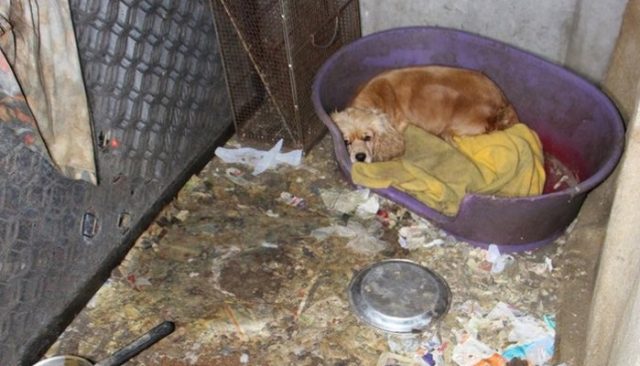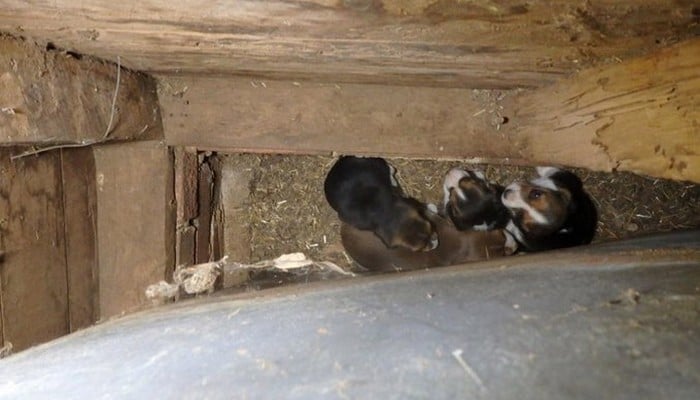
When two women snuck into a puppy mill in a remote area of New South Wales (Australia), they could not believe what they saw. During their last visit to the same puppy mill in 2015, Debra Tranter and her co-investigator found the dogs living in filthy conditions.
Unfortunately, they had to leave the first time, but only after insisting that the owner improve the conditions. What caught Tranter's attention on this particular visit was a female beagle that was hiding in the corner of the dirty shed. She was clearly in poor health and weak and highly suspicious of the new guests.
When Tranter stooped down to film the female dog, she heard a puppy cry.
She immediately started looking around to see where the puppies could be. The puppies were being kept in an even more horrible condition. They were housed in a dilapidated shed, infested with rats, floors dirty and no bedding. The available water was dirty and was filled with green slime. The whole shed reeked of urine and fecal excrements.

Tranter is founder of the of the Australian anti-puppy mill group Oscar's Law. Tranter, together with her co-investigator documented these horrible conditions, pieced up the evidence and handed it over to the RSPCA. As a result, 16 dogs in need of medical care were removed.
Dogs need socialization with humans and other animals in order to foster their emotional development. But the problem with dogs brought up in puppy mills is that they are deprived of critical human interaction and an opportunity to bond with human beings.
RECOMMENDED READ: Where to Buy a Dog: Responsible Adoption
As a result, it hinders the pup's emotional development, and he may never develop any real interest in human beings. These dogs will later develop into dull, listless animals that are devoid of connecting with their family. Aggression may become an issue and these dogs are likely to withdraw from their environment.
Besides, because of the number of puppies in the mills, they have little or no access to veterinary care. That means many of the puppies are likely to have hidden health problems.

Unfortunately, heartless breeders are still running puppy mills to rake in large profits. These breeders do not care about the dogs – money is their only desire. And, since puppy mills are not illegal, such businesses are coming up almost everywhere to take advantage of the quick puppy dollar.
The problem is further compounded by reckless dog buyers who are only interested in getting a dog, but not worried about the conditions where they are raised. In the United States, the U.S. Department of Agriculture licenses dog breeders, but the industry has poor regulation. Sadly, even when operators of the puppy mills are found to be violating the animal cruelty laws, they are given time to ‘remedy’ their issues at the expense of the suffering animals.
Despite all that, Tranter is not giving up. She is optimistic that in the future things will change – that keeping puppies in profit-driven puppy mills will be outlawed. She hopes that laws will be made that will ban the sale of animals in pet shops and that authorities will enact the necessary legislation that will punish rogue puppy mills owners.
A big wag of the tail for Tranter and her friend for exposing these heartless puppy mill operators and helping free the 16 precious souls.












